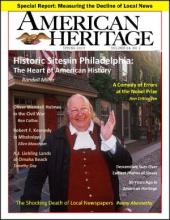Special Issue - George Washington Prize 2017
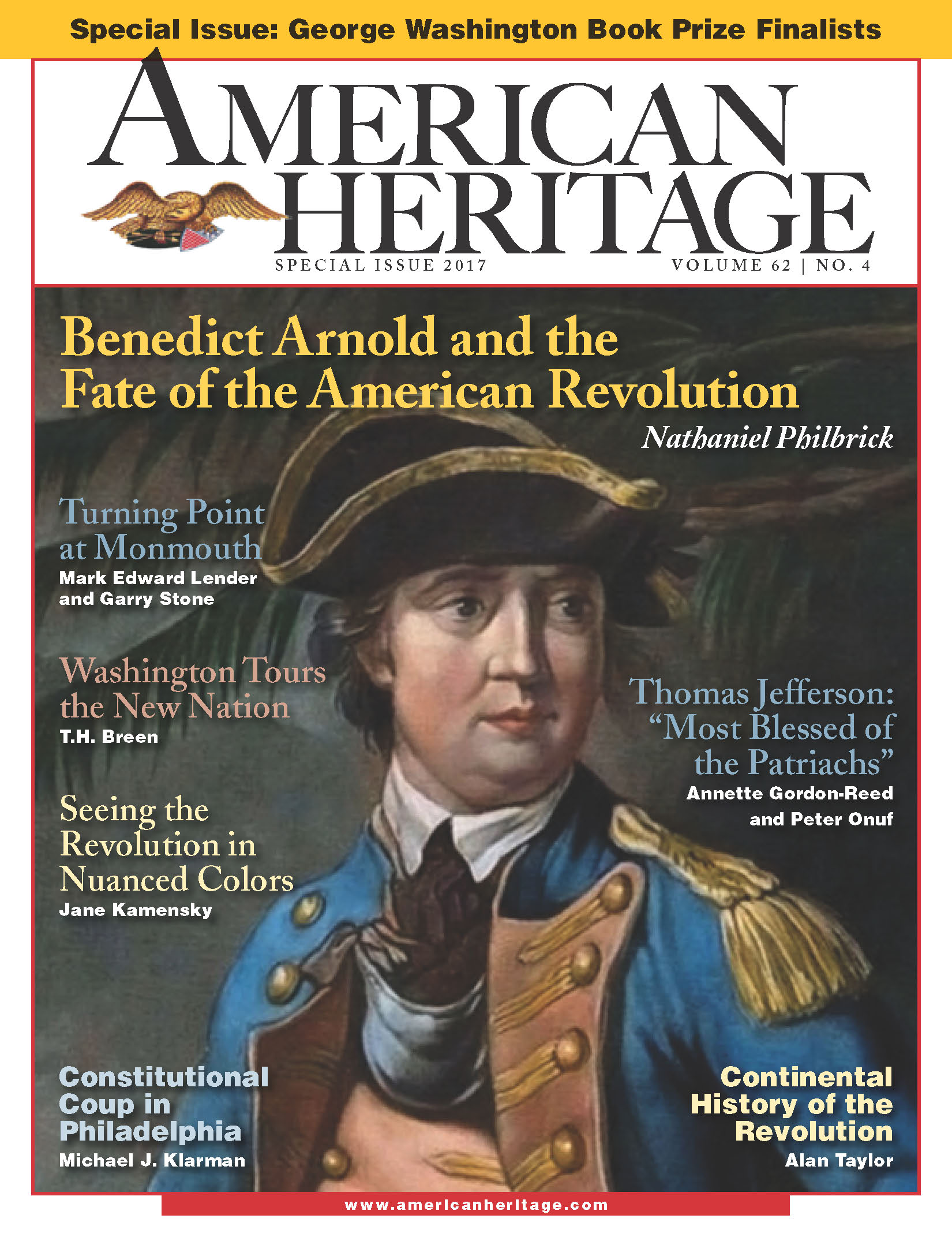
Departments
Editor's Letter
Features
It became convenient to portray Benedict Arnold as a conniving traitor, but the truth is more complex. The brilliant general often failed to get credit for his military wins, suffered painful wounds, lost his fortune while others profiteered, and finally gave up on the disorganized and often ineffective efforts to win the American Revolution.
The battle of Monmouth was pivotal in the struggle for independence, enabling George Washington to change the narrative of the war and eventually solidify his own role in our nation's history.
It's often portrayed as an orderly conflict between Patriots, Tories, and British, but the American Revolution caused much suffering, dislocation, and economic decline, and had major effects on Native Americans and Spanish, French, Dutch, and other colonists worldwide.
To explore the American Revolution through the eyes of John Singleton Copley is to see it with fresh eyes, to understand that it was a civil war with many shades of allegiance.
After becoming President, George Washington undertook an extraordinary journey through all thirteen colonies to unite – and learn from – a diverse population of citizens. His quest to unite our nation and discover the "temper and disposition" of its people are an inspiration to us today.
It is important to tell the story of the Constitution’s origins in a way that demythifies it. Impressive as they were, the men who wrote the Constitution were not demigods; they had interests, prejudices, and moral blind spots.
Important new information on the central figure in the early American republic has surfaced with the publication of new volumes of Jefferson's journals and correspondence.
Issue by year
2023


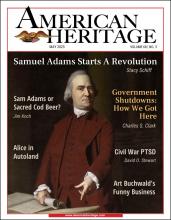



2022

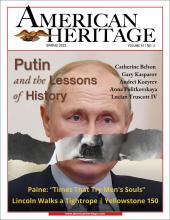




2021







2020




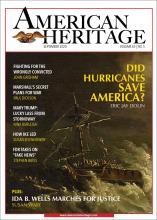



2019

